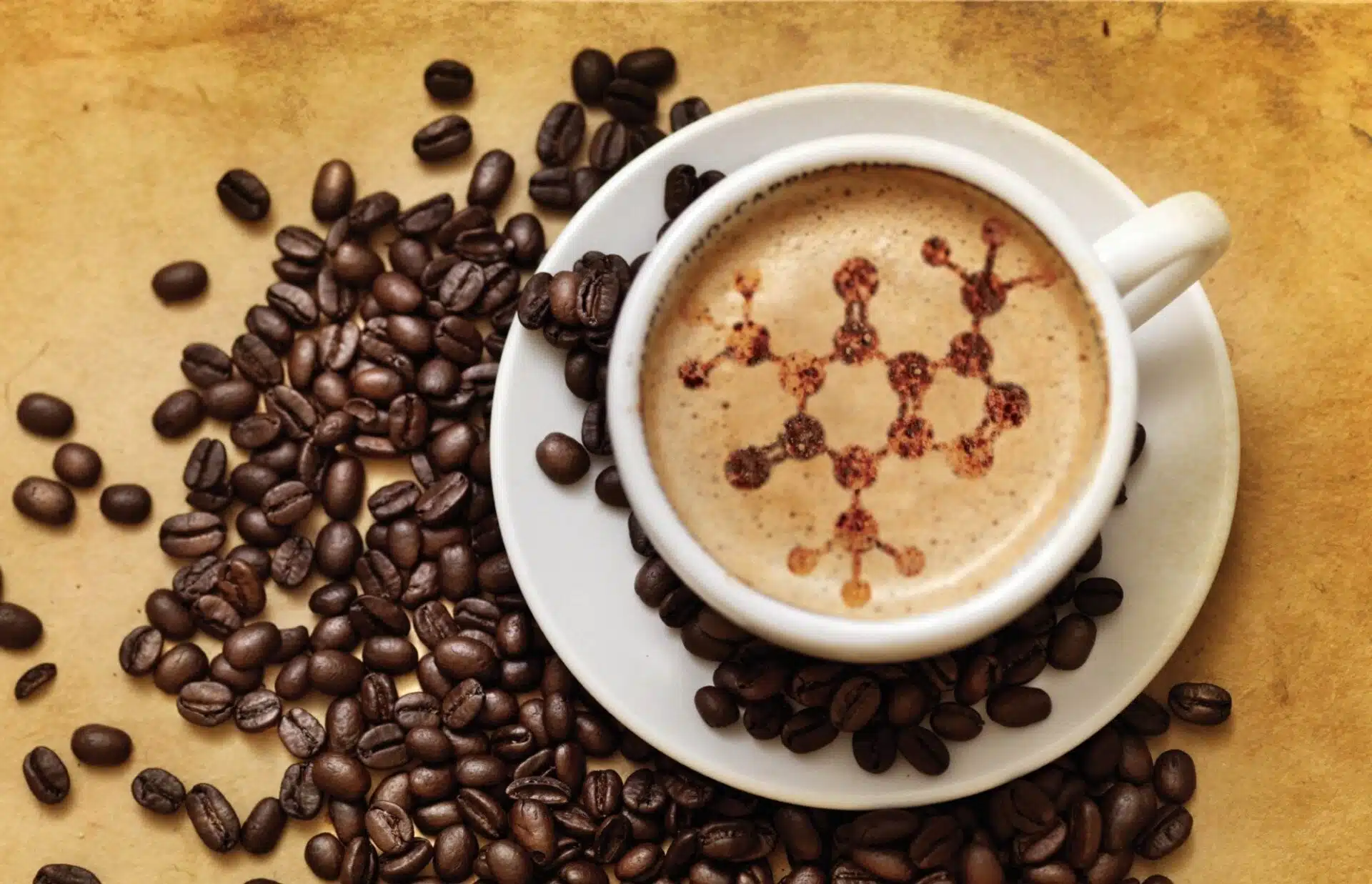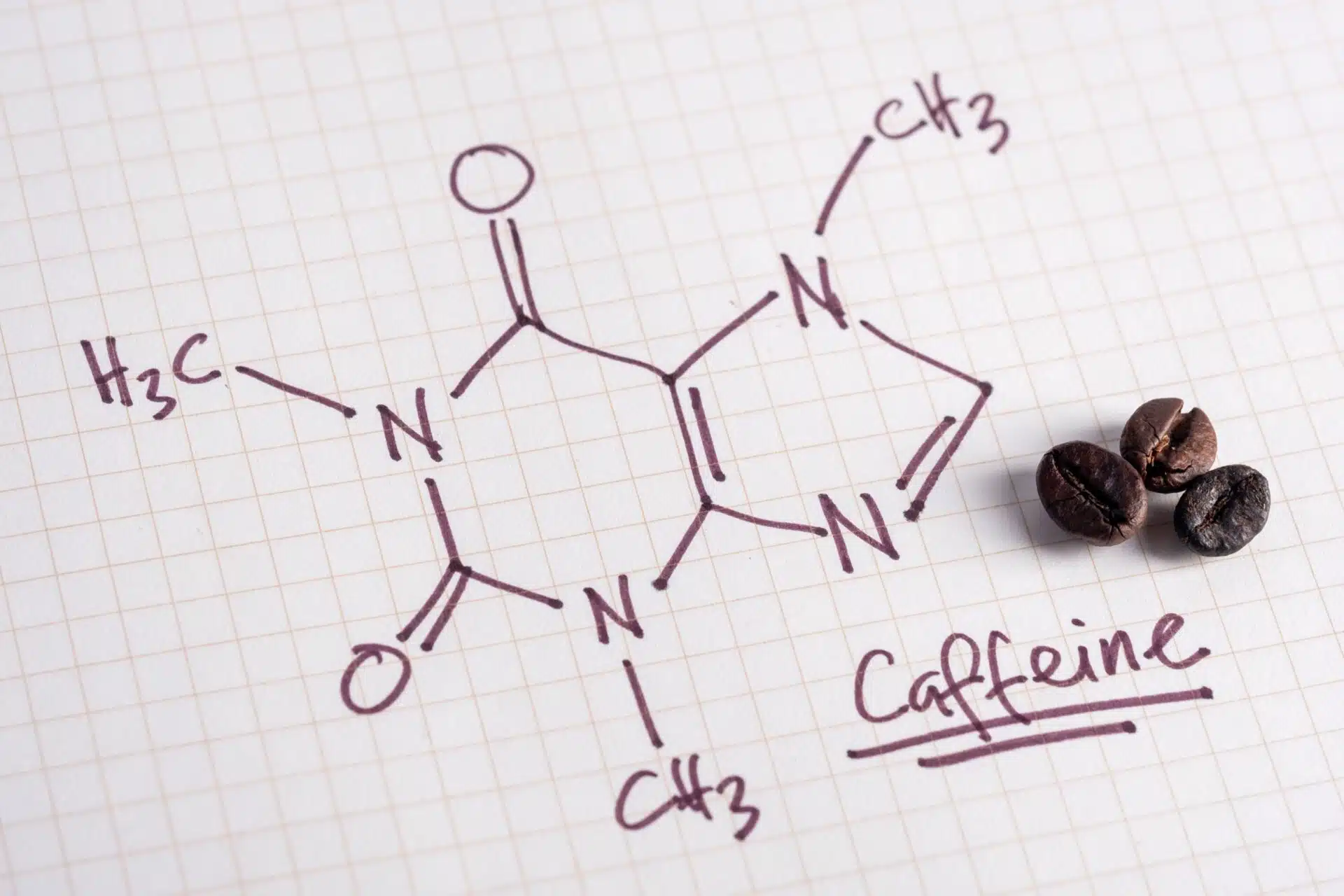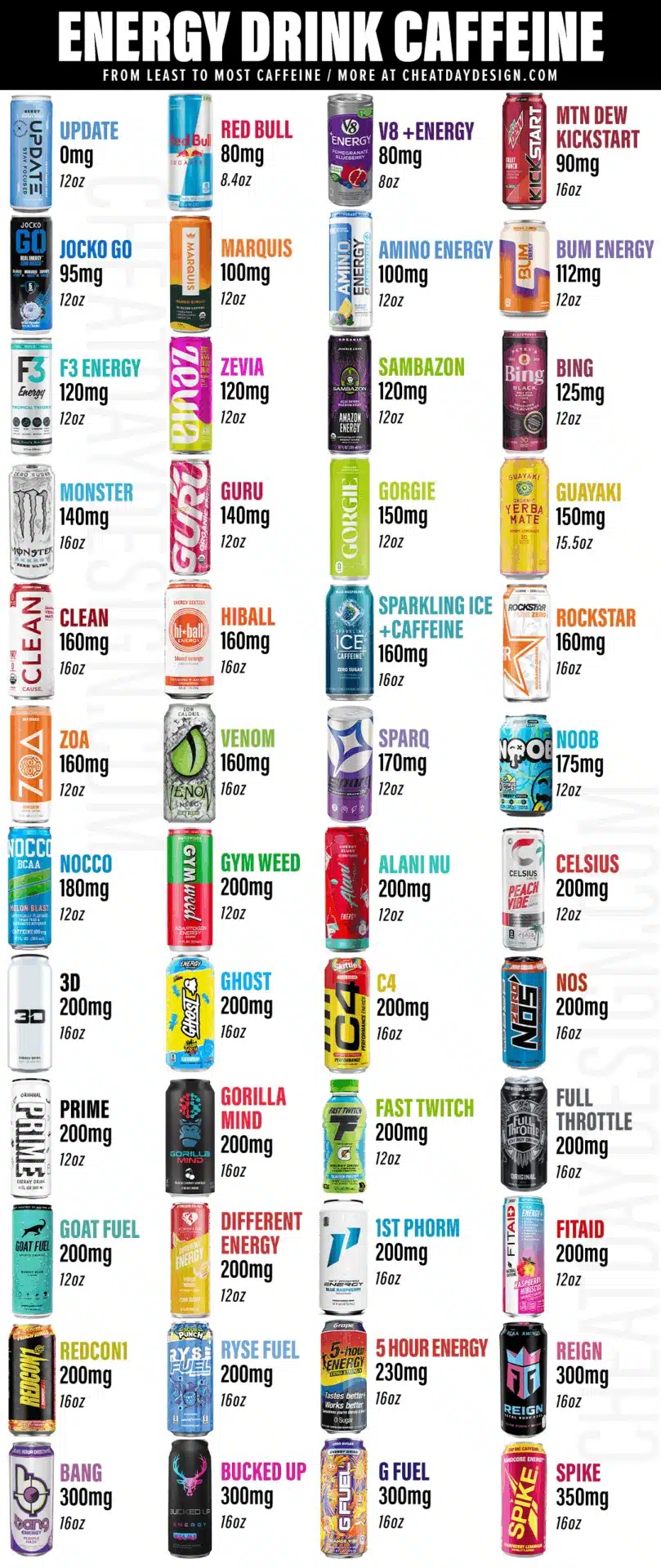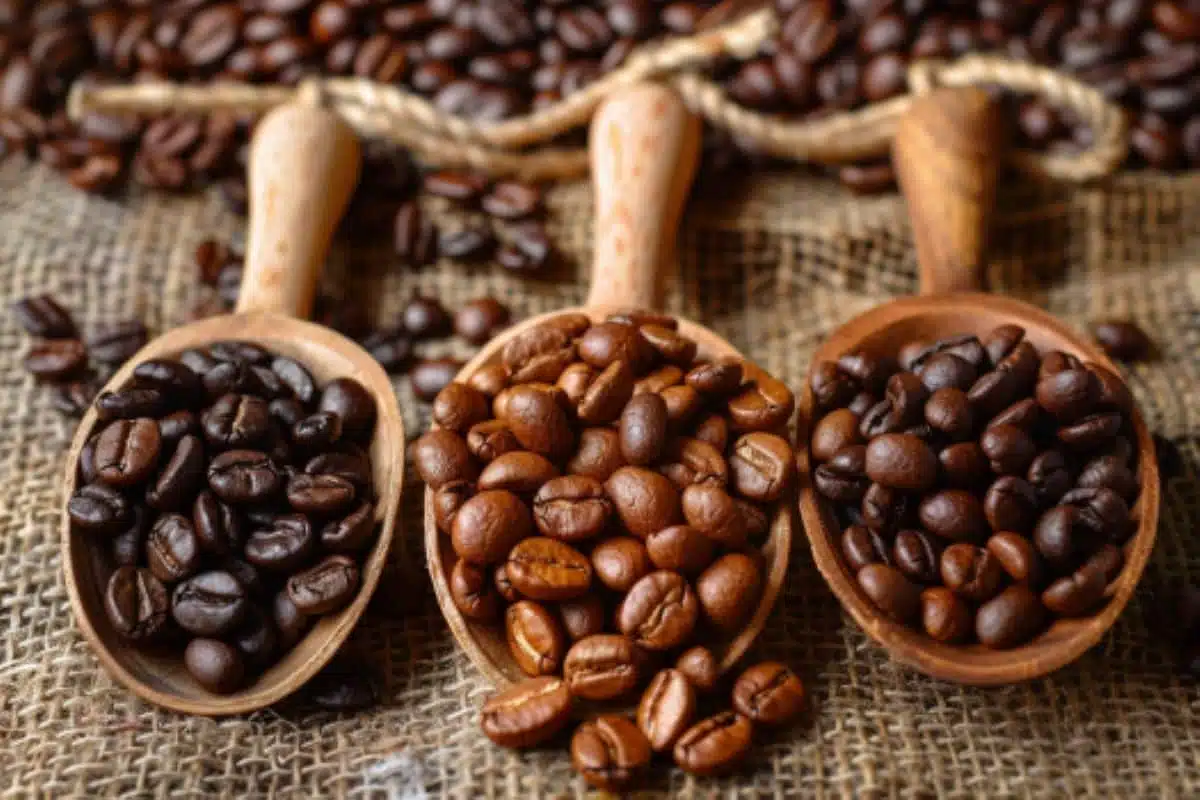Caffeine captivates millions worldwide, not just for its delightful taste but also for its energizing effects. This beloved stimulant plays a vital role in our daily routines, helping us to stay alert and focused. Curious about its impact? From enhancing brain function to boosting physical performance, the benefits of caffeine are remarkable. As we delve into the science behind this remarkable compound, we’ll also explore its various sources, health benefits, and cultural significance, promising an exciting journey through the wonderful world of caffeine.
What is Caffeine and Why Do We Love It?
Caffeine is a natural stimulant found in various plants, most notably in coffee beans, tea leaves, and cacao pods. It’s renowned for its ability to increase alertness and reduce fatigue, making it a beloved companion during long workdays and study sessions. But why do we adore this energizing compound so much?
Here are a few key reasons:
- Boosts Alertness: Caffeine works by blocking the neurotransmitter adenosine, which promotes sleepiness. This leads to increased levels of dopamine and norepinephrine, enhancing mood and focus.
- Social Experience: For many, enjoying a cup of coffee or tea is more than just a caffeine boost; it’s a cherished ritual that fosters connection and conversation, whether at home or in a café.
- Health Benefits: Moderate caffeine consumption may lower the risk of certain diseases, including Parkinson’s, type 2 diabetes, and even some forms of cancer, further cementing its appeal.
In conclusion, caffeine captivates us not just for its stimulating effects but also for its cultural significance and potential health perks. It’s an indispensable part of our daily lives, and its popularity is sure to endure as we continue to savor its many forms.

The Science Behind Caffeine: How It Affects Our Brain
Caffeine, the beloved stimulant found in coffee, tea, and various energy drinks, significantly affects our brain function. When consumed, caffeine travels swiftly to the brain, where it performs its magic by blocking the action of adenosine, a neurotransmitter that promotes sleep and relaxation. As a result, our alertness and mood improve remarkably.
Here’s a breakdown of how caffeine interacts with our brain:
- Increased Alertness: By inhibiting adenosine, caffeine helps us feel more awake and focused. This leads to enhanced cognitive functions such as attention and reaction time.
- Elevated Mood: Not only does caffeine keep us alert, but it also boosts the production of dopamine, often referred to as the “feel-good” neurotransmitter. This effect can lead to feelings of happiness and improved mood.
- Enhanced Memory: Some studies suggest that caffeine can improve short-term memory, making it easier for us to retain and recall information.
- Physical Performance: Caffeine enhances endurance and reduces perceived effort during physical activities, making it a preferred choice for fitness enthusiasts.
Comparison of Caffeine Sources
| Source | Caffeine Content (per 8 oz) | Other Benefits |
|---|---|---|
| Coffee | 95 mg | Rich in antioxidants |
| Tea | 50 mg | Contains L-theanine for relaxation |
| Energy Drinks | 80 mg | Quick energy boost, often with added sugars |
Understanding how caffeine affects our brain enables us to enjoy its benefits while making informed choices about our consumption. So, let’s raise our cups to the fascinating science behind this beloved stimulant!
Different Sources of Caffeine: From Coffee to Tea
Caffeine exists in various delightful forms, making it accessible to everyone. While coffee often steals the spotlight, let’s explore the diverse sources of caffeine that many people enjoy.
- Coffee: The most popular source, coffee packs a significant caffeine punch. A standard 8-ounce cup contains approximately 95 mg of caffeine. This robust brew energizes and invigorates, making it a morning staple for millions.
- Tea: Next on the list, tea offers a gentler caffeine experience. Depending on the type, an 8-ounce cup can contain between 20 to 70 mg of caffeine. Black tea tends to have more caffeine than green and herbal varieties. The soothing ritual of brewing a cup of tea also brings additional health benefits.
- Energy Drinks: Energizing beverages can be quite potent, often containing anywhere from 50 to 300 mg of caffeine in a single serving. However, be cautious; these drinks may include added sugars and other stimulants.
- Soft Drinks: Regular sodas typically have less caffeine, averaging around 30 mg per 12-ounce can. Diet sodas may contain similar amounts, providing a fizzy alternative for those who enjoy a caffeine boost without the calories.
- Chocolate: Surprise! Caffeine also hides in your favorite chocolate treats. Dark chocolate has about 20 mg of caffeine per ounce, giving you that sweet pick-me-up.
Exploring these various sources of caffeine allows you to choose your favorite beverages while enjoying an energizing lift throughout your day!
Health Benefits of Moderate Caffeine Consumption
Moderate caffeine consumption offers a plethora of health advantages that can enhance your well-being and productivity. Research consistently highlights these positive effects, making caffeine a beloved ingredient in many daily routines. Here are some key benefits associated with moderate caffeine intake:
- Increased Alertness: Caffeine stimulates the central nervous system, helping to improve focus and reduce fatigue. It can be particularly beneficial during those mid-afternoon slumps.
- Enhanced Physical Performance: Athletes often rely on caffeine for an extra edge. It can boost endurance and strength, making workouts more effective.
- Mental Sharpness: Regular, moderate consumption of caffeine may lower the risk of cognitive decline, keeping the brain sharp and focused as we age.
- Mood Improvement: Caffeine also has the potential to elevate mood, thanks to its ability to increase dopamine production, leading to feelings of happiness and well-being.
Comparison of Caffeine Sources
| Source | Average Caffeine Content (mg) | Notes |
|---|---|---|
| Coffee (8 oz) | 95-200 | Rich in antioxidants |
| Tea (8 oz) | 30-70 | Contains L-theanine for balance |
| Energy Drinks | 80-160 | High sugar often included |
| Dark Chocolate | 20-40 | A delightful treat with health benefits |
In moderation, caffeine can truly be your ally. Make sure to listen to your body and find that sweet spot where you can enjoy its energizing effects without any adverse consequences!

Caffeine and Physical Performance: A Boost for Fitness Enthusiasts
Caffeine offers an exciting edge for fitness enthusiasts looking to enhance their performance. Many athletes and casual gym-goers rely on caffeine to help them push through workouts and reach their goals. Here’s how caffeine can be a game-changer for physical performance:
- Increased Endurance: Caffeine can delay fatigue, allowing you to exercise longer. Studies show that consuming caffeine before workouts can significantly improve endurance during activities such as running or cycling.
- Enhanced Strength: Research indicates that caffeine boosts muscle contractions, contributing to improved strength during high-intensity workouts or resistance training.
- Better Focus: Caffeine elevates alertness and concentration, which can enhance coordination and mental clarity. This is crucial during complex movements like weightlifting or sports that require quick decision-making.
- Improved Recovery: While caffeine primarily benefits performance, it can also help with recovery. Consuming caffeine post-workout may reduce the perception of pain and soreness.
Here’s a quick comparison table summarizing how caffeine can benefit various types of exercise:
| Type of Exercise | Caffeine Benefit |
|---|---|
| Endurance Activities | Increases stamina |
| Strength Training | Boosts muscle strength |
| High-Intensity Intervals | Enhances power output |
| Team Sports | Improves reaction time |
Incorporating caffeine into your fitness routine can truly be a significant boost. However, moderation is key, as too much caffeine can lead to jitters or disrupt your sleep. Enjoying caffeine mindfully allows you to take advantage of its benefits without overdoing it!
Exploring Caffeine Myths and Facts
Caffeine, a popular stimulant, often sparks curiosity and misconceptions. To fully appreciate this energetic compound, let’s clarify some common myths and present the facts behind them.
Myth vs. Fact
- Myth: Caffeine dehydrates you.
- Fact: While caffeine has mild diuretic properties, moderate consumption typically doesn’t cause dehydration. Most caffeinated beverages contribute to your daily fluid intake.
- Myth: Caffeine stunts growth.
- Fact: There is no scientific evidence supporting that caffeine adversely affects growth in children or adolescents.
- Myth: Caffeine is addictive.
- Fact: While some people experience withdrawal symptoms, caffeine doesn’t cause dependence like more serious substances. Many enjoy their daily caffeine without issues.
- Myth: Caffeine disrupts sleep for everyone.
- Fact: Sensitivity to caffeine varies. While some may struggle with sleep, others can enjoy caffeine without it affecting their rest.
- Myth: Caffeine causes heart problems.
- Fact: Research shows that moderate caffeine consumption does not increase the risk of heart disease for most healthy adults.
By understanding these myths and their corresponding facts, you can enjoy caffeine and its benefits more confidently. Whether you prefer a morning coffee or an afternoon tea, embracing caffeine can enhance your day-to-day energy!
The Art of Brewing the Perfect Caffeine Drink
Brewing the perfect caffeine drink is an art that combines science, technique, and personal preference. Whether you enjoy a bold cup of coffee or a soothing cup of tea, mastering the brewing process can elevate your experience to new heights. Here are some tips to ensure your caffeine drink is just right:
Coffee Brewing Techniques
- French Press: Coarse grind, steep for 4 minutes, and enjoy a rich flavor.
- Pour Over: Use a medium grind, and pour water steadily for a clean finish.
- Espresso: Finely ground coffee, high pressure, and a short brew time create a concentrated shot.
Tea Brewing Tips
- Black Tea: Steep in boiling water for 3-5 minutes for strong caffeine.
- Green Tea: Use water that is slightly below boiling and steep for 2-3 minutes to avoid bitterness.
- Herbal Teas: Although caffeine-free, they still provide a delightful foray of flavors.
Key Considerations
- Water Quality: Always use filtered or mineral water for the best taste.
- Coffee to Water Ratio: A good rule of thumb is 1:15 (coffee: water).
- Temperature Matters: For coffee, ideal brewing temperature is around 195°F to 205°F.
Experimenting with different brewing methods not only helps you find your ideal caffeine drink but also enhances your appreciation for this beloved ingredient. Every cup can be a new adventure!

Alternatives to Caffeinated Beverages
If you’re looking to enjoy an energy boost without caffeine, you have plenty of delightful alternatives. Many naturally energizing options can provide similar benefits without the jitters that caffeine sometimes brings. Here’s a breakdown of some fantastic substitutes:
- Herbal teas: Varieties like rooibos or peppermint not only taste great but can invigorate your senses without the caffeine kick.
- Chicory coffee: This caffeine-free alternative mimics the rich taste of coffee and can be enjoyed brewed hot or cold.
- Yerba mate: Hailing from South America, yerba mate offers a mild dose of caffeine along with a plethora of antioxidants, making it a balanced choice.
- Matcha: Although it contains some caffeine, matcha releases energy slowly due to its L-theanine content, leading to sustained alertness without crashes.
- Golden milk: This turmeric-based drink provides anti-inflammatory benefits and energy enhancement without any caffeine.
Comparison Table of Caffeine Alternatives
| Beverage | Caffeine Content | Additional Benefits |
|---|---|---|
| Herbal Teas | 0 mg | Calming effects |
| Chicory Coffee | 0 mg | Good for digestion |
| Yerba Mate | ~30 mg | Rich in antioxidants |
| Matcha | ~30 mg | Supports mental clarity |
| Golden Milk | 0 mg | Anti-inflammatory properties |
Exploring these caffeine alternatives allows you to enjoy vibrant flavors and healthy benefits while keeping caffeine intake in check! Remember, there’s a world of options to energize you throughout the day.
Caffeine Consumption Around the World
Caffeine captivates people globally, influencing cultures and lifestyles. Across various regions, the consumption patterns of caffeine reveal fascinating trends. Here’s a glimpse into how different societies embrace this energizing compound:
- Coffee Cultures:
- Italy: Espresso is a staple, enjoyed socially at cafes.
- Sweden: Fika, a coffee break tradition, promotes quality time with coffee and pastries.
- Tea Traditions:
- China: Green tea and oolong are steeped in history, often accompanying meals.
- United Kingdom: Afternoon tea showcases black tea as a quintessential part of social gatherings.
- Innovative Beverages:
- Japan: Matcha, a finely ground green tea, offers a unique caffeine experience, often in ceremonial contexts.
- Brazil: Guaraná, a local fruit, plays a key role in soft drinks, contributing to Brazil’s caffeine habits.
| Country | Preferred Caffeine Source | Average Daily Intake |
|---|---|---|
| Italy | Espresso | 3-5 cups |
| Sweden | Brewed coffee | 4 cups |
| China | Green tea | 2-3 cups |
| United Kingdom | Black tea | 3-4 cups |
Countries also display varying perceptions of caffeine. Some celebrate high consumption, while others advocate moderation. Regardless of the source or tradition, caffeine unites diverse cultures under its energizing umbrella, enhancing both daily routines and social interactions. Embracing its rich variety allows us all to savor the delightful benefits and experiences that caffeine offers.
How to Enjoy Caffeine Responsibly
Caffeine can be a delightful addition to your daily routine, enhancing your energy and concentration. However, enjoying it responsibly is key to reaping its benefits without the downsides. Here are some practical tips to savor caffeine wisely:
- Know Your Limits: Aim to consume about 200-400 mg of caffeine per day, equivalent to around 2 to 4 cups of coffee. Regularly monitor how your body reacts to different amounts.
- Timing Matters: Enjoy caffeine during the morning or early afternoon. Consuming it too late in the day can disrupt your sleep pattern, leading to fatigue.
- Stay Hydrated: Caffeine acts as a mild diuretic. Counterbalance its effects by drinking enough water throughout the day.
- Choose Quality Sources: Opt for natural sources like coffee and tea, which contain additional antioxidants. Avoid sugary or heavily processed caffeinated drinks.
- Listen to Your Body: Pay attention to how caffeine affects your mood and energy levels. If you feel anxious or jittery, it may be time to cut back.
By following these tips, you can enjoy the vibrant energy that caffeine offers without compromising your well-being. Embrace caffeine as a helpful ally in your day-to-day life, and experience the lovely balance it can bring!

Conclusion: Embracing the Energy of Caffeine
In conclusion, caffeine has become an integral part of many people’s daily routines. This marvelous stimulant offers an array of benefits that can boost both our mood and productivity. However, it’s important to embrace caffeine mindfully and responsibly. Here are a few key takeaways:
- Moderation is Key: While caffeine provides numerous advantages, overconsumption can lead to negative effects like jitteriness or insomnia. Aim for a balanced intake to enjoy its perks without the downsides.
- Choose Quality Sources: Opt for high-quality sources of caffeine, such as organic coffee or herbal teas. These options not only taste great but also often come with additional health benefits.
- Listen to Your Body: Everyone’s sensitivity to caffeine differs. Pay attention to how your body reacts and adjust your intake accordingly for optimal energy levels.
- Diversify Your Sources: Don’t limit yourself to just one source of caffeine. Experiment with various drinks, like matcha or chai, to discover what fuels you best while keeping it exciting.
Embracing caffeine offers a unique opportunity to enhance our energy and focus throughout the day. By approaching it thoughtfully and with respect for our individual needs, we can enjoy the invigorating effects of caffeine while feeling our best. So go ahead, sip that cup of coffee or tea and revel in the energy caffeine brings!
Frequently Asked Questions
What is caffeine, and how does it work in the body?
Caffeine is a natural stimulant predominantly found in coffee, tea, and various energy drinks. It primarily works by blocking the action of adenosine, a neurotransmitter that promotes sleep and relaxation. As a result, caffeine increases alertness and can enhance mood and cognitive function. When consumed, it’s absorbed quickly into the bloodstream, where it affects the brain, leading to increased energy levels and reduced fatigue.
What are the potential health benefits of caffeine consumption?
Caffeine offers several intriguing health benefits when consumed in moderation. Research suggests it can enhance mental alertness, improve physical performance, and even lower the risk of certain diseases such as Parkinson’s and Alzheimer’s. It may also aid in weight management by boosting metabolism and promoting fat oxidation. Furthermore, some studies indicate that caffeine consumption is associated with a lower risk of developing type 2 diabetes, making it a delightful addition to your daily routine!
Are there any negative side effects of consuming too much caffeine?
While caffeine can be beneficial, excessive consumption may lead to negative side effects including anxiety, jitteriness, digestive issues, and disrupted sleep patterns. High doses can also increase heart rate and blood pressure temporarily. It’s generally recommended that adults limit their caffeine intake to about 400mg per day, roughly equivalent to four 8-ounce cups of brewed coffee. Listening to your body and moderating your intake can help you enjoy caffeine’s perks without the drawbacks!
Can I become addicted to caffeine?
Caffeine can lead to dependence in some individuals, similar to other stimulants. Regular consumers may experience withdrawal symptoms such as headaches, fatigue, and irritability when they miss their usual intake. However, these symptoms usually subside within a few days. Moderation is key! By keeping your caffeine consumption at a reasonable level and allowing for breaks, you can enjoy its stimulating effects without developing a dependency.
What are some common sources of caffeine besides coffee and tea?
Caffeine can be found in various sources beyond the beloved coffee and tea. Popular alternatives include energy drinks, sodas, and even chocolate! Additionally, some medications and weight loss supplements may contain caffeine. For those looking for a lighter option, yerba mate and matcha are wonderful beverages rich in caffeine but with unique flavors and health benefits. Exploring different sources of caffeine can add variety to your daily routine while keeping you energized!

